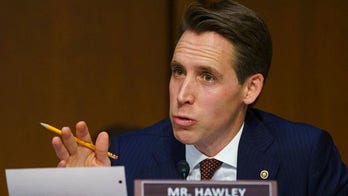Cuomo, De Blasio are 'banking on a bailout from Biden' when instituting lockdowns: Gasparino
Fox Business senior correspondent Charles Gasparino reacts to Wall Street’s reduced in-office personnel hurting New York City’s economy.
New York Gov. Andrew Cuomo delivered his "state of the state" address on Monday, telling residents he intends to reopen the state’s economy in a safe way despite an uptick in confirmed coronavirus cases.
The Democratic governor put a heavy emphasis on planning the state’s "economic resurgence," even as it faces a record-setting budget deficit.
"We simply cannot stay closed until the vaccine hits critical mass – the cost is too high," Cuomo said in his address. "We must reopen the economy, but we must do it smartly and safely."
Cuomo added that the plan was to use COVID-19 testing to enable the reopening of restaurants, arts centers, and theaters.
Without making moves now, Cuomo gravely forecast that the state would have "nothing left to open."
A spokesperson for Cuomo's office declined to elaborate on the reopening plan beyond remarks made by the governor on Monday.
Like many states, New York shut down completely at the outset of the pandemic in the spring.
In the summer, the state shifted to a policy of targeting so-called "hot spots," where businesses were closed within specified areas when confirmed cases climbed above a certain percentage threshold.
Cases throughout the U.S. are once again at record levels -- with New York’s statewide positivity rate at 6.22% as of Sunday.
NY TO BEGIN SCHEDULING COVID-19 VACCINES FOR SENIORS, FIRST RESPONDERS NEXT WEEK
The state is facing a coronavirus-related budget hole valued at a record $15 billion, Cuomo said.
He repeated calls for federal aid to state and local governments, a plea that is likely to fall on more sympathetic ears after Democrats take control of Congress and the White House.
But he has also proposed other measures to raise money, like legalizing cannabis and online sports betting, which would generate additional tax revenues.
CLICK HERE FOR COMPLETE CORONAVIRUS COVERAGE
Meanwhile, New York’s coronavirus vaccine rollout -- like others throughout the United States -- has proceeded at a slower-than-expected pace.
As of Saturday, 543,147 doses had been administered in the state.




